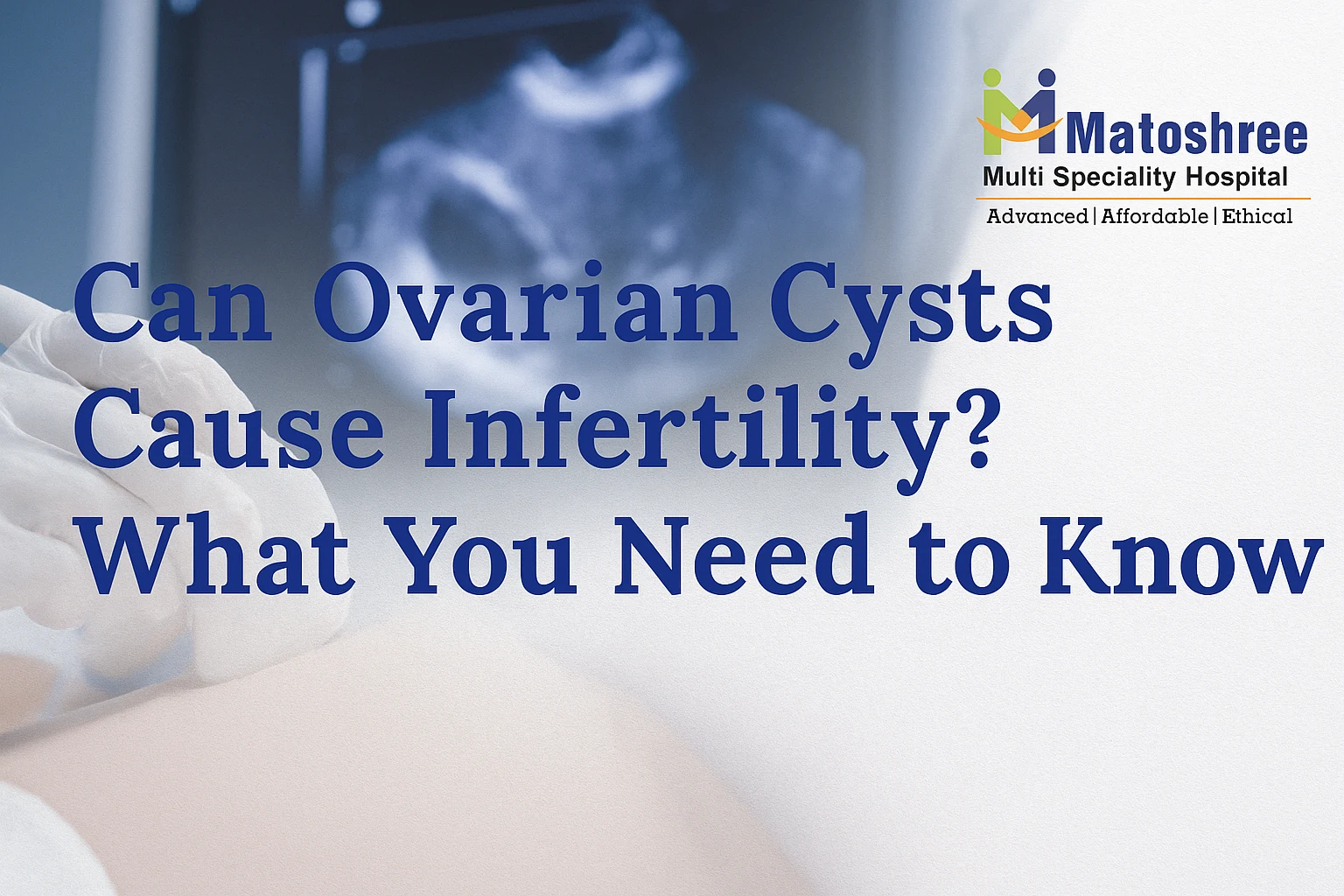Can Ovarian Cysts Cause Infertility? What You Need to Know

Ovarian cysts are sacs filled with fluid that grow on or within an ovary. They are benign in most women, spontaneously resolving without problems. But what about a common question: can ovarian cysts be responsible for causing infertility? Understanding when cysts affect fertility is essential in deciding whether or not to treat and when other or conventional therapies such as Ayurveda can be beneficial. Also required is understanding the efficiency of ayurvedic treatment for infertility, particularly in women wanting less invasive, holistic treatment. This is where awareness of gynecology meaning in Marathi (स्त्रीरोगशास्त्राचा अर्थ) can also help women relate to these concerns in their own language.
What Are Ovarian Cysts?
There are several types of ovarian cysts. Some of them are functional cysts, such as corpus luteum and follicular cysts, which are common during the menstrual cycle and usually go away on their own. Others are pathological cysts that develop and cause problems, like cystadenomas or dermoid cysts. A hormonal imbalance and a large number of tiny cysts that interfere with ovulation are the hallmarks of a rare condition called polycystic ovary syndrome (PCOS).
Do Ovarian Cysts Always Affect Fertility?
Not necessarily. For most women, simple or functional cysts do not cause infertility. These cysts usually interfere only in rare cases—for example when they are very large, affect both ovaries, somehow block ovulation, or when they rupture or twist (a condition called ovarian torsion). With PCOS, irregular ovulation is common, leading to challenges conceiving, but many women with PCOS do achieve pregnancy with proper treatment.
Physicians generally begin to investigate fertility after twelve months of attempting conceiving naturally (or six months if the woman is over thirty-five) to determine whether cysts or associated conditions are the cause. Cysts may need to be removed surgically if they threaten damage to ovarian tissue, but these procedures are typically done cautiously in order to avoid damaging the ability to be fertile.
Treatment Options & Risks
- Observation – Many cysts disappear on their own under watchful waiting.
- Medication – For hormonal cysts or PCOS, ovulation-inducing drugs may be prescribed.
- Surgery – Reserved for cysts that are big, recurrent, painful, or affecting fertility. Surgeries attempt to conserve as much ovarian tissue as possible.
- Lifestyle modifications – Balanced diet, weight management, stress reduction.
Ayurvedic Approach & Its Role
Traditional Indian medicine, or Ayurveda, uses detoxification, yoga, diet, and herbal therapy to balance hormones, enhance ovarian function, and increase fertility. A very large number of women have found improvement in menstrual regularity and ovulation following an Ayurvedic regimen. However, scientific studies are limited; success often depends on the individual’s condition—especially how severe the cysts are, whether PCOS is involved, and how early treatment begins.
Conclusion – Bringing It All Together
So, does infertility result from ovarian cysts? Generally speaking, simple cysts won't. However, ovulation and conception can be disrupted by issues like PCOS or large or pathological cysts, which calls for fertility treatment. Anyone interested in natural or traditional therapies should consider the success rate of ayurvedic treatment for infertility. Despite promising anecdotal and early clinical reports, the evidence is weaker than in current medical trials, and results vary. A combination of guided complementary therapies and medical evaluation may yield the best results for infertility. A fertility specialist should always be consulted before making any decisions, particularly those involving hormonal therapy or surgery.





















 (1).png)